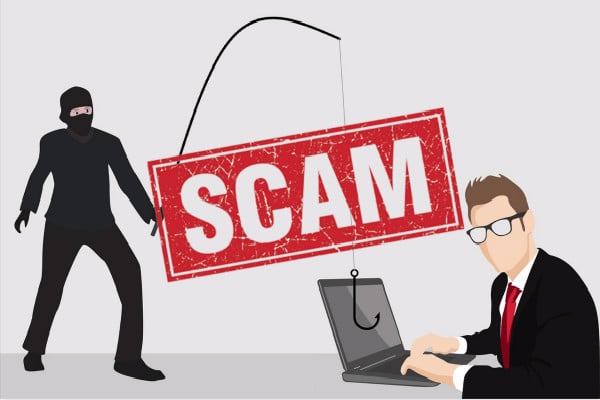Inattentive ADHD Medication
Women with inattentive common adhd medications uk often have trouble keeping up with everyday tasks. They may have difficulty finishing assignments at school or at work, and their personal lives could be chaotic.
Medications help people with inattentive ADHD focus on tasks. The stimulants help by increasing the levels of chemicals that transmit messages between nerve cells in the brain.
What are the symptoms?
Inattention ADHD is characterized by difficulty with focus, organization, and planning actions. It can cause issues for both children and adults, including forgetfulness, difficulty following directions, or not working on tasks at the classroom or at work.
Unlike the hyperactive-impulsive subtype of ADHD, people with inattentive ADD don’t exhibit overt behavioral symptoms, such as interrupting others, blurting out answers, or fidgeting. This can make it difficult for them to get diagnosed, and then to find effective treatment. In reality, many people who have inattentive ADHD don’t even realize they have an issue until they’re older.
While the symptoms of inattentive ADD can interfere with everyday life, there are special talents and skills that can allow these people to achieve their goals. For instance, people with inattentive ADD tend to be imaginative and adept at communicating verbally. They may also be susceptible to being distracted and begin many projects and not finish any of them.
Children with inattention ADD often have difficulty following the simple instructions given by their parents or teachers. They may be found doodleing in their notebooks, imagining during class or failing to finish assignments and chores. This behavior can continue to negatively affect their lives as they enter adolescence or adulthood. Adults with inattentive ADD are also unable to keep their jobs steady and may have trouble keeping track of emails and documents at work.
While women are more likely than males to be diagnosed with inattention intuniv adhd medication, the gender gap is lessens as women move into adulthood and adolescence. This may be a sign of greater awareness or a shift in how mild adhd medication is seen and treated by women.
Stimulants are among the most popular treatment for inattention ADHD. These medications help regulate chemical messengers referred to as neurotransmitters in the brain. This is the most commonly used medication used to treat adhd without medication adults all types of ADHD. Around 80% people with inattentive ADD have improved symptoms when they take this medication. In addition to taking stimulants, a lot of women with inattentive ADD benefit from cognitive behavior therapy (CBT) which aids to develop skills such as prioritizing, scheduling and making lists of tasks. Other treatment options include diet modifications as well as exercise, mindfulness, and stress management techniques.
What are the warnings?
If a person struggles to focus on their tasks, they could be suffering from inattention ADHD. This can lead to a variety of issues, including problems at work or school. It can also cause problems with relationships and anger. Symptoms include trouble staying on track, failing to follow instructions and difficulty in recalling information. A lack of concentration can lead to erroneous mistakes. Someone with inattention ADHD may have difficulty completing tasks or classwork at home. They may have to be reminded or assisted by teachers and parents repeatedly to finish their work in time.
In general, for adolescents and children to be diagnosed with inattentive ADHD the patient must show at least six of the nine signs listed in the American Psychiatric Association’s diagnostic manual (DSM-V). After age 17, only five symptoms are needed. These symptoms can be very disruptive to the daily routine of the person.
The most commonly used treatment for inattentive ADHD is a combination of lifestyle adjustments and medication. Keeping a schedule and writing lists of tasks can help those with inattentive ADHD manage their work more efficiently. It is also beneficial to create a calm space, free of distractions. Turning the radio or TV to mute will help in reducing background noises that can be distracting. Organizing school materials and homework can aid children with inattention ADHD keep track of their work and supplies. It is important to be clear and concise when giving instructions to children and teens with inattentive ADHD.
It’s also beneficial to provide an environment that is safe for children with inattention ADHD to express their emotions such as anger or discontent. A counselor can assist families learn how to recognize the signs that a child is unhappy and how to react in a way that doesn’t escalate into serious emotional or behavioral issues.
A therapist can help people with inattentive ADHD develop skills to manage their symptoms in various environments, including work, school, or home. Cognitive behavioral therapy (CBT) can assist people with inattentive ADHD learn how to prioritize their work and organize their time. It also teaches strategies to increase focus, including being aware of their optimal concentration span and planning tasks accordingly.
What are the treatment options?
Attention-deficit ADHD symptoms can impact the performance of a person at work and school and lead to problems in relationships with friends and family. Recognizing the disorder and seeking treatment may improve the capacity of an individual to function on a daily basis. Medication may be a part of the treatment plan. They are most effective when employed in conjunction with therapy and behavior changes. It can take time to determine the appropriate medications dosage, schedule, and dosage to control ADHD symptoms.
There are different medications available for people with ADHD inattentive type. The most commonly used are stimulants, which increase the amount of chemicals in the brain that aid in the areas of attention and cognition. Non-stimulant medications can be prescribed when stimulants don’t work or cause unpleasant side effects. These medications take longer to kick in, but they can help increase focus and reduce impulsiveness.
A combination of medication, therapy, and behavioral changes is the best course of treatment for people suffering from ADHD inattentive type. Behavioral therapy, which is also known as a behavior intervention, aids people with ADHD to develop positive habits and reduce the negative ones. People who have ADHD inattentive can benefit from strategies like reducing distractions and maintaining regularity. It is also helpful to break down lengthy tasks into smaller parts and budget the appropriate time to complete them.
If the person with ADHD inattention also suffers from depression or anxiety, antidepressants or anti-anxiety medications are also available. The doctor will assess the severity of anxiety or depression, how the other medications might interact, and any potential adverse consequences.
The aim of treatment is improving the patient’s ability to function at home, school as well as in social settings. It may take some time to find the most effective combination of medication, therapy and behavior modification to reduce ADHD symptoms. However, it’s worth the effort. It is important that people who suffer from ADHD inattentive types realize that they have the potential to do more and seek treatment that will help them reach their maximum potential. This is especially important for adults, since if they are not treated ADHD inattention can you get adhd medication without a diagnosis result in poor performance at work and even loss of employment.
What are the possible side-effects?
Medications for ADHD can trigger adverse effects. Not everyone will get them, and they typically go away as your body adjusts to the medication. Your doctor will put you or your child on a low dosage and monitor how it affects you. They may also lower the dose or switch you to a different medicine if the first one doesn’t work or has too many side effects. The most commonly used stimulant drugs that are used for ADHD are methylphenidates, (Vyvanse XR, Adderall, Evekeo) and amphetamines (Adderall). Most people are in good health to take these medications. But they can lead to an increase in heart rate and blood pressure which is why doctors are cautious to watch these changes.
Stimulant medications can also affect sleep and appetite. They can cause you to feel shaky or lightheaded at times. It is possible to feel a stomach ache or urine may change to dark green or red. The effects of stimulant medications fade throughout the day because they stay within the body for several hours. They also interact with some other medications, including blood thinners. Your doctor will check with you or your child’s doctor to be sure they aren’t taking any other medications.
Nonstimulant adhd medication private Prescription medications require longer time to work however they can help improve concentration and decrease impulses. They do not alter dopamine, which makes them less likely to cause addiction or abuse issues. They don’t suffer the same adverse effects as stimulants. The most popular nonstimulant medications for ADHD are Strattera (atomoxetine) and Qelbree (viloxazine). Both are part of a class of antidepressants referred to as selective norepinephrine reuptake inhibitors.






